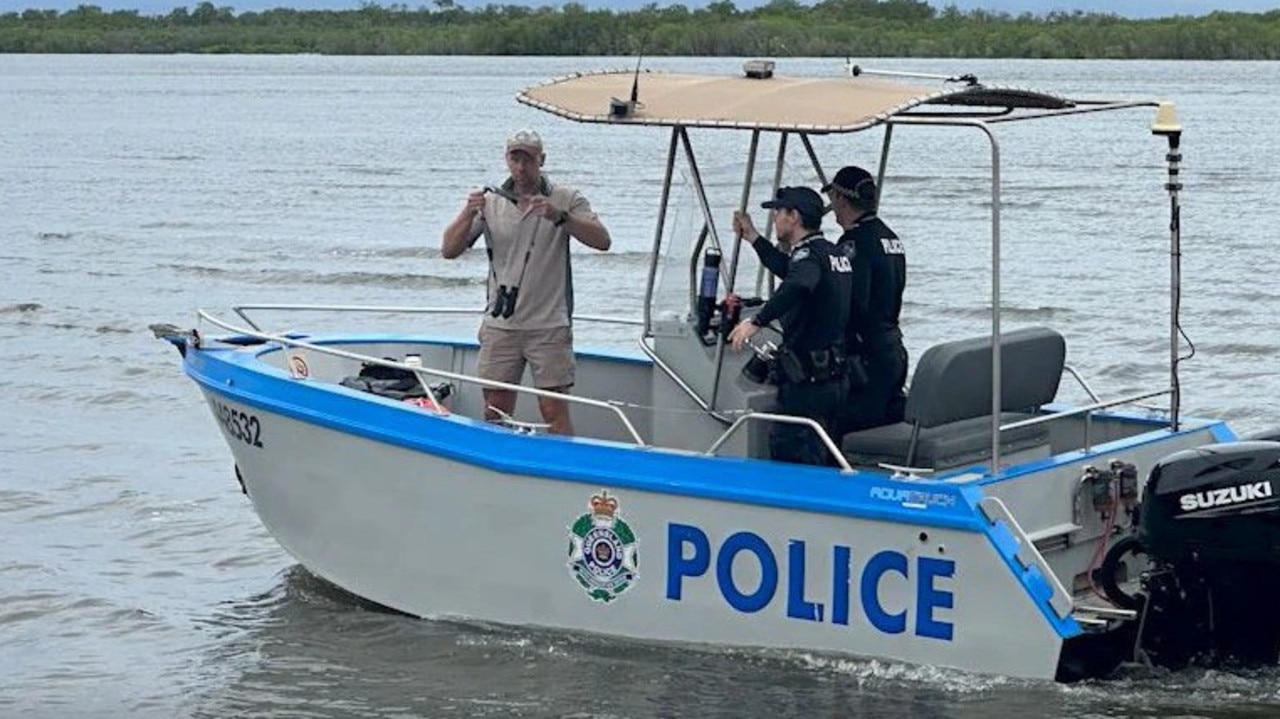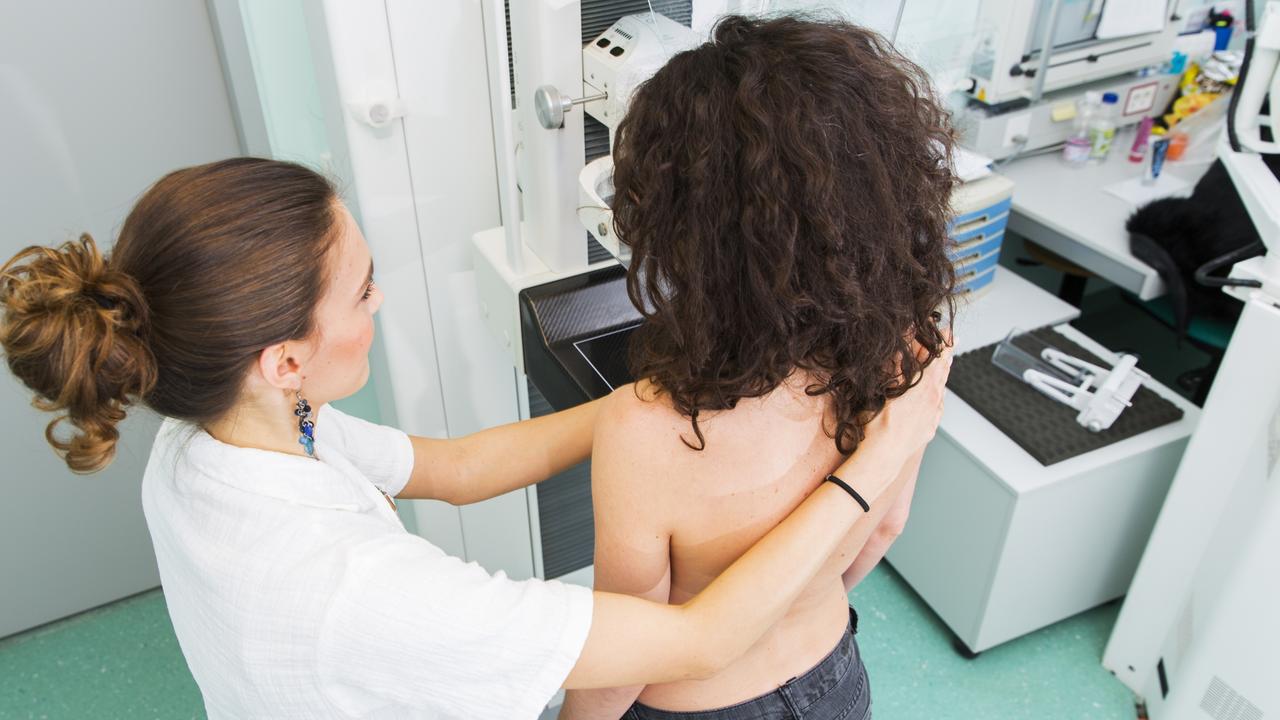Tourist calls for bat removal after being bitten in Cairns CBD
A Geelong woman has had to stave off a potentially fatal virus after she was bitten on the head by a bat while holidaying in the Cairns CBD.
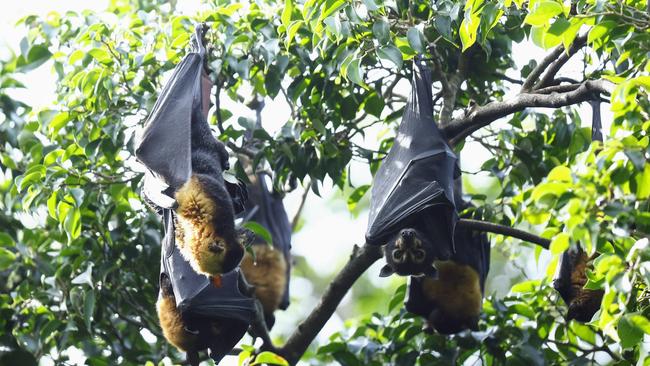
Cairns
Don't miss out on the headlines from Cairns. Followed categories will be added to My News.
A woman has had to stave off a potentially fatal virus after she was bitten on the head by a bat while holidaying in the Cairns CBD.
Sandi Galloway, a 67-year-old Geelong grandmother, and her partner Gordon were recently in Cairns for a post-pandemic tropical holiday when their trip was spoiled by a bat bite.
The couple were walking back to their hotel after meeting with friends for a late night coffee around 11pm, when Ms Galloway felt something flying around her.
“We were staying at the Novotel on Lake Street and were walking past the park that runs on the edge of that when I felt something flying over my head,” Ms Galloway said.
“Because I’m partially blind, I couldn’t see what it was so I flicked my hand up because it felt like it was going to land on me.
“Next thing, I felt this sting, like two pinpricks on my forehead.”
Ms Galloway was later tested for the potentially fatal lyssavirus, with symptoms including headache, fever and fatigue.
While still awaiting her results, Ms Galloway believes it’s likely she has the virus due to her symptoms.
The start of Lyssavirus symptoms are variable and can take weeks or years to appear, however if left untreated, it can be fatal.
Despite her partner telling her she had been bitten by a bat, Ms Galloway refused to believe it.
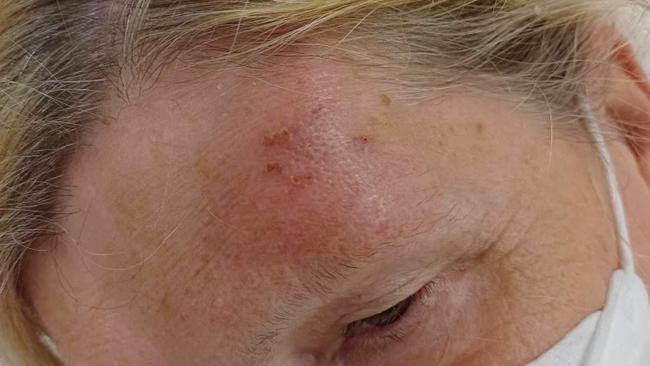
“I kept telling myself it was probably a spider because, even though a part of me knew it, I didn’t want to believe a bat had bitten me,” she said.
“Having (bats) in the middle of town is ridiculous. I find it abhorrent this happened while on holidays when I should’ve been enjoying myself, but instead stayed indoors afterwards for fear of it happening again.”
Ms Galloway said apart from a lack of appetite and fatigue, she didn’t think about the bite until the flight home.
“I didn’t want to look stupid going to a doctor about the bite because I thought this doesn’t happen in real life. Then I told my daughter and she told me I could get rabies from it and could die so I made an appointment with my GP.”
Although no animals carry rabies in Australia, bats can carry the potentially fatal lyssavirus.
Three Australians and two horses are known to have died of the virus between 1996 and 2013, including an eight-year-old North Queensland boy.
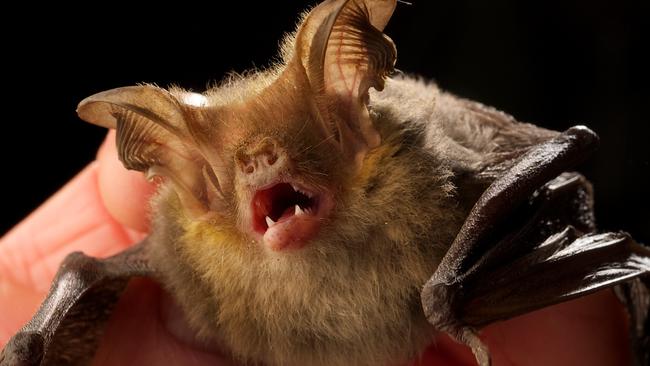
At her appointment, Ms Galloway’s GP referred her to the hospital, who called in the infectious diseases department.
“They had to get the registrar from infectious diseases in to give me the needles because the doctors from the hospital can’t give the vaccines. They had to fly one of the medications in from Canberra,” she said.
Ms Galloway said she received five injections on Wednesday and will need three more rounds over the next three weeks.
“If I miss an injection, I have to start the whole process again. I have to reschedule my MRI because I had a brain tumour and I go for yearly check ups to make sure it’s dormant, but I can’t do the MRI while taking this course of treatment,” she said.
Ms Galloway said she would not return to Cairns unless the bats were relocated.
“It would be the best thing for Cairns to remove the bats from the city and relocate them to an area that’s not so crowded,” she said.
Cairns Regional Council said it has undertaken flying fox management and deterrent activities in the city for many years including on a daily basis.
Council has been recognised as a leader in flying-fox management following the successful relocation of flying-foxes from the City Library site to more appropriate areas in 2020.
A spokesperson said the relocation of flying-foxes out of the CBD was successful in that it significantly reduced deaths in the flying fox population and it improved the amenity for the community.
“Council’s Flying-Fox Colony Management General Policy outlines a multi-faceted and balanced approach to managing flying-foxes which uses scientific advice and data to determine appropriate actions,” they said.
“The policy maintains that the health and wellbeing of people is to be given primary consideration over the health and wellbeing of flying foxes, where there is conflict between the two.
“This is a very rare yet alarming incident, however, if council is made aware of a significant flying-fox roost that may cause conflict between the people and flying foxes, signage will be posted around the site to make the community aware.”
More Coverage
Originally published as Tourist calls for bat removal after being bitten in Cairns CBD



